People around the world have developed unique traditions of table manners and dining etiquette. Much like any other form of etiquette, it’s incredibly important to respect and follow these customs when you’re travelling abroad.
Dining abroad can often make people feel uneasy, with the host of unfamiliar rules and foods. Here are some extremely specific do’s and don’ts from around the world that you should brush up on before you travel.
1. In India, always eat with your right hand
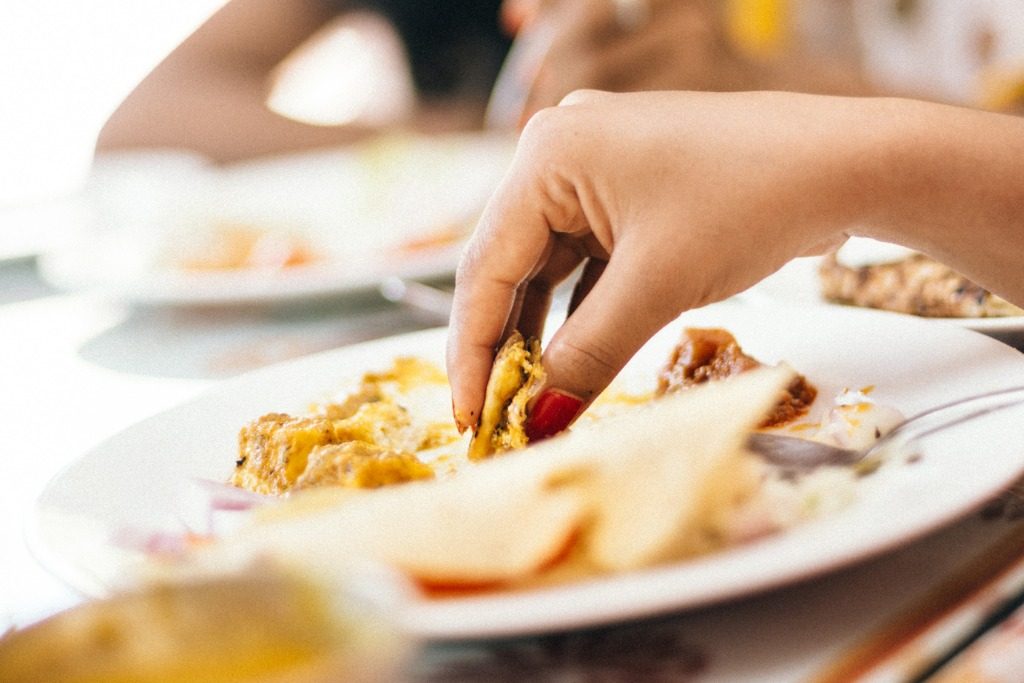 In India, and across the Middle East and parts of Africa, always make sure to use your right hand to eat meals, as the left hand is considered unclean. Also, don’t actually put the fingers in your mouth; use your thumb to push the food in.
In India, and across the Middle East and parts of Africa, always make sure to use your right hand to eat meals, as the left hand is considered unclean. Also, don’t actually put the fingers in your mouth; use your thumb to push the food in.
2. In Egypt, wait for someone else to refill your glass
 Getting from a meal or a gathering to refill your glass is considered bad manners in Egypt. Instead, you should wait for someone else (usually your neighbour) to offer to do so. Similarly, you should also offer to refill your neighbour’s glasses.
Getting from a meal or a gathering to refill your glass is considered bad manners in Egypt. Instead, you should wait for someone else (usually your neighbour) to offer to do so. Similarly, you should also offer to refill your neighbour’s glasses.
3. Don’t eat your bread before your food in France
 In France, if bread is put on the table, it is not an appetizer; it’s meant to accompany your food. You’re meant to tear off pieces and use it to push food onto the fork or to mop up sauces.
In France, if bread is put on the table, it is not an appetizer; it’s meant to accompany your food. You’re meant to tear off pieces and use it to push food onto the fork or to mop up sauces.
Also Read: When In France… French Food Customs To Keep In Mind
4. Don’t offer to split the bill in France
 Eating out is a fairly common occurrence in France. But, whether you’re out with friends or acquaintances, splitting the bill is considered highly unsophisticated. Either offer to pay the bill fully or let someone else do so.
Eating out is a fairly common occurrence in France. But, whether you’re out with friends or acquaintances, splitting the bill is considered highly unsophisticated. Either offer to pay the bill fully or let someone else do so.
5. Never order a cappuccino after a meal in Italy
 Italians never order milky beverages after a meal, as milk is seen to hinder digestion. Instead, they stick to espresso or black coffee, which is seen as a digestive. Ordering a cappuccino won’t result in outrage, but will definitely mark you out as a tourist.
Italians never order milky beverages after a meal, as milk is seen to hinder digestion. Instead, they stick to espresso or black coffee, which is seen as a digestive. Ordering a cappuccino won’t result in outrage, but will definitely mark you out as a tourist.
Also Read: 11 Tourist Faux Pas To Avoid When Travelling
6. In Italy, don’t add extra condiments to your pizza
 Also in Italy, don’t ever ask for cheese, ketchup, or other condiments to put on your pizza if they aren’t offered to you.
Also in Italy, don’t ever ask for cheese, ketchup, or other condiments to put on your pizza if they aren’t offered to you.
7. Tipping in Japan is frowned upon upon
 Tipping is a common and even a desired custom in many countries, but quite the opposite is true in Japan. It is quite rare, and in some places, they might even reject the money.
Tipping is a common and even a desired custom in many countries, but quite the opposite is true in Japan. It is quite rare, and in some places, they might even reject the money.
8. Never stick your chopstick upright in a bowl of rice
 In Japanese culture, chopsticks placed vertically in rice in offerings made to the dead and at funerals. It is therefore considered bad manners and bad luck to do so during the course of a meal.
In Japanese culture, chopsticks placed vertically in rice in offerings made to the dead and at funerals. It is therefore considered bad manners and bad luck to do so during the course of a meal.
9. Also, don’t pass the food using chopsticks
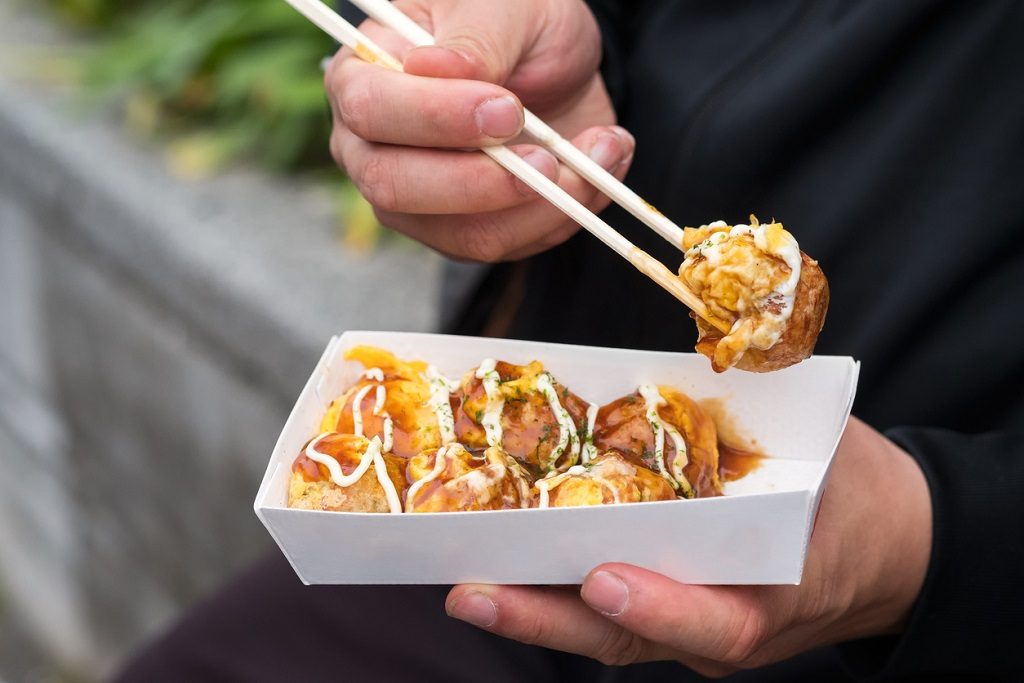 Another funeral ritual in Japan consists of the passing of bones from one set of chopsticks to another. So, it is considered extremely rude and even taboo to pass food this way.
Another funeral ritual in Japan consists of the passing of bones from one set of chopsticks to another. So, it is considered extremely rude and even taboo to pass food this way.
Also Read: Japanese Customs That One Should Know Before Travelling To Japan
10. Accept plates of food that are offered to you with both hands
 If you’re offered a plate, or even a large bowl, of food in Korea, make sure to accept it with both hands and to hold it firmly. This shows respect and gratitude to your hosts and to the food.
If you’re offered a plate, or even a large bowl, of food in Korea, make sure to accept it with both hands and to hold it firmly. This shows respect and gratitude to your hosts and to the food.
11. Always use the blunt end of the chopsticks when picking up food from a shared plate
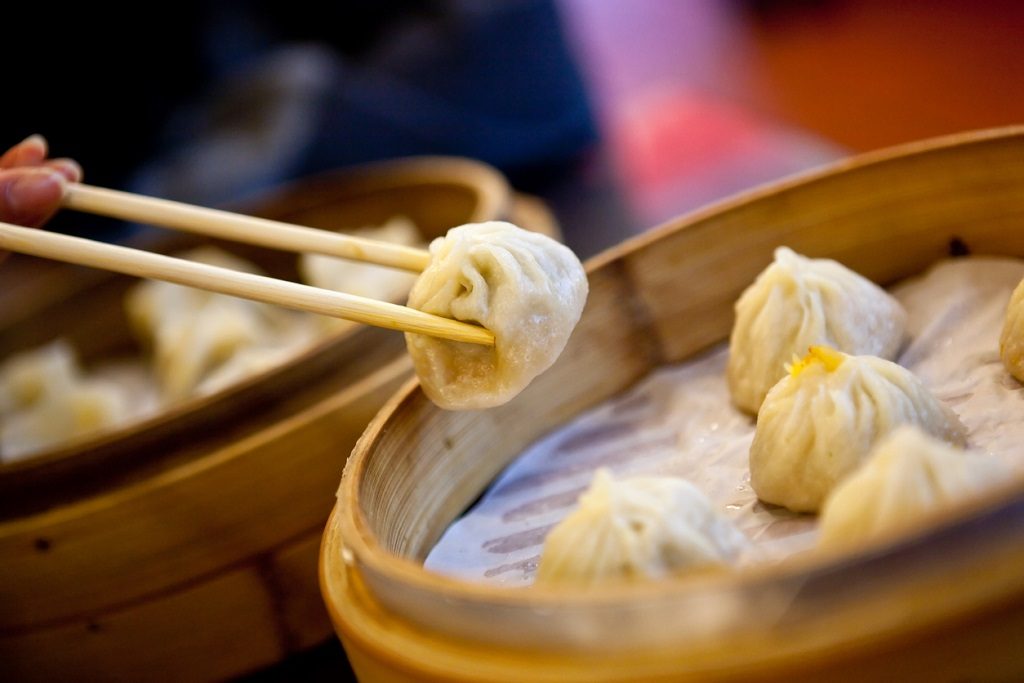 In Japan, and in China, many plates of dishes are shared amongst a group. Apart from avoiding passing food from chopsticks to chopsticks, in such cases, you should also never use the pointed end of the chopsticks (that go into your mouth) to dip into shared dishes. Use the other blunt end instead.
In Japan, and in China, many plates of dishes are shared amongst a group. Apart from avoiding passing food from chopsticks to chopsticks, in such cases, you should also never use the pointed end of the chopsticks (that go into your mouth) to dip into shared dishes. Use the other blunt end instead.
12. Leave behind a little food on your plate when dining in China
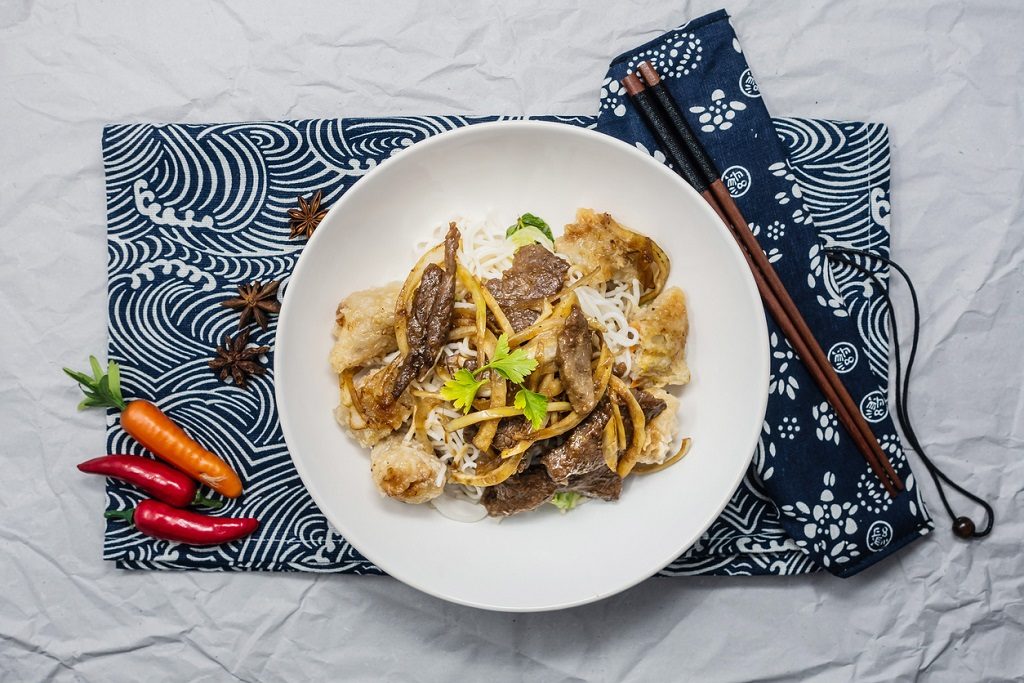 When you’re dining out in China, make sure to leave a little food on your plate after you’re done eating. It shows that you have been given more than enough food by your hosts and that you are full.
When you’re dining out in China, make sure to leave a little food on your plate after you’re done eating. It shows that you have been given more than enough food by your hosts and that you are full.
Also Read: Chinese Customs and Superstitions to Keep in Mind
13. If a whole fish is served in China never flip it over
 Don’t flip the fish over after eating one side, as this is said to resemble a capsizing boat and it is considered bad luck. So, if you wish to finish the other side of your fish, remove the bones and continue eating on to the other side.
Don’t flip the fish over after eating one side, as this is said to resemble a capsizing boat and it is considered bad luck. So, if you wish to finish the other side of your fish, remove the bones and continue eating on to the other side.
14. In Thailand, don’t use your fork to put food in your mouth
 When you’re in Thailand, eating with a fork is seen as unacceptable. Instead, you’re expected to use the fork to push the food onto a spoon and use that to eat with.
When you’re in Thailand, eating with a fork is seen as unacceptable. Instead, you’re expected to use the fork to push the food onto a spoon and use that to eat with.
15. Don’t ask for salt or pepper in Portugal
 If salt and pepper aren’t provided on the table, don’t ask for them, as it is considered insulting to the seasoning skills of the chef.
If salt and pepper aren’t provided on the table, don’t ask for them, as it is considered insulting to the seasoning skills of the chef.
16. Never use your hands to eat in Chile
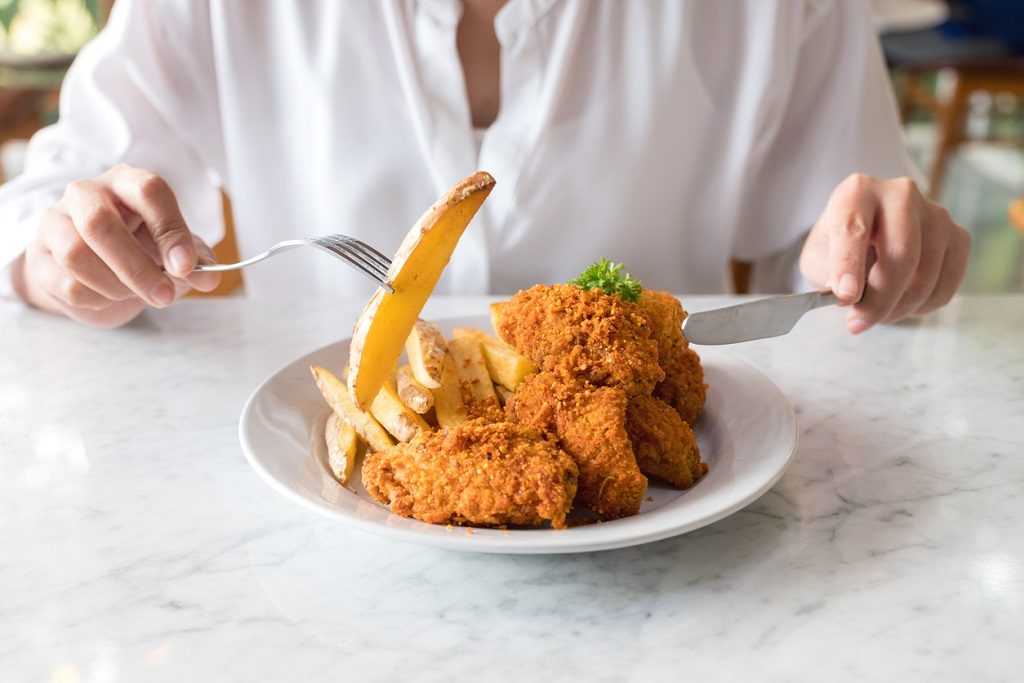 In Chile, it is seen as extremely ill-mannered to touch your food with your hands. This is also often the case in Brazil. So, make sure to eat everything with your fork and knife, even burgers and French fries.
In Chile, it is seen as extremely ill-mannered to touch your food with your hands. This is also often the case in Brazil. So, make sure to eat everything with your fork and knife, even burgers and French fries.
17. Never mix the wasabi and the soy sauce when you’re having sushi
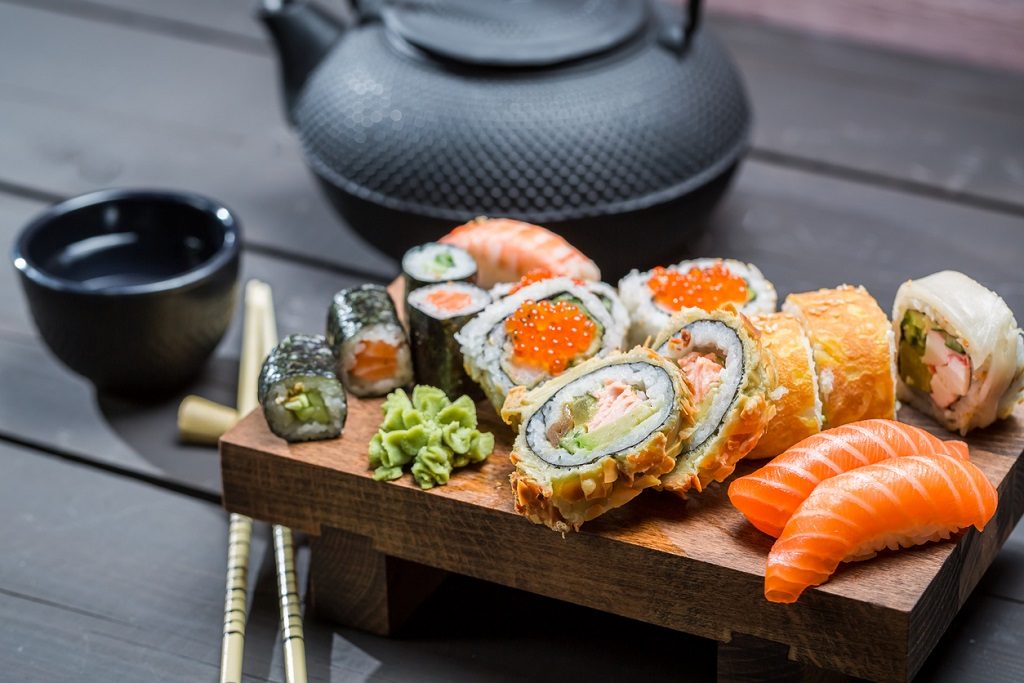 It is considered bad manners to mix the wasabi and the soy sauce in a bowl to dip your sushi in. If you must have the wasabi, it goes directly on top of the fish, while the fish (and NOT the rice) is to be dipped in soy sauce. Meanwhile, ginger is eaten between pieces of sushi as a palate cleanser.
It is considered bad manners to mix the wasabi and the soy sauce in a bowl to dip your sushi in. If you must have the wasabi, it goes directly on top of the fish, while the fish (and NOT the rice) is to be dipped in soy sauce. Meanwhile, ginger is eaten between pieces of sushi as a palate cleanser.
18. Don’t expect a full cup of tea in Kazakhstan
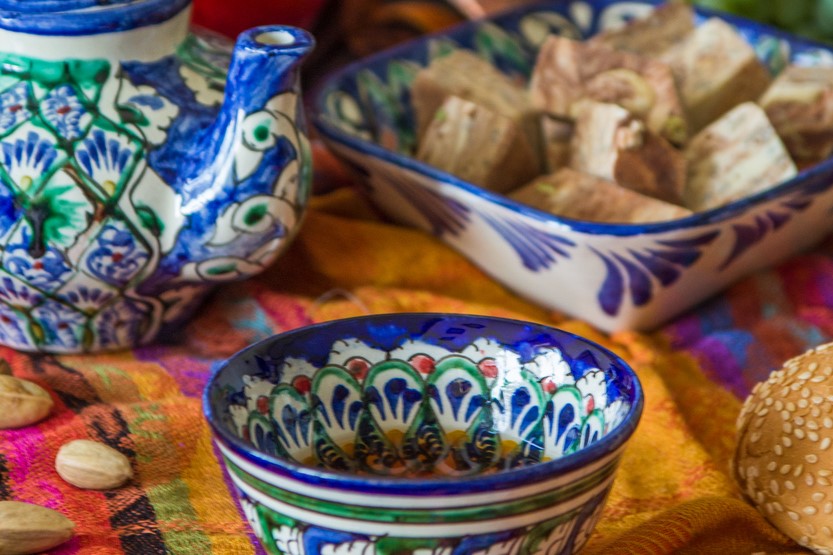 If your host in Kazakhstan serves you a cup of tea that is only half full, don’t feel bad. It is a good sign, unlike a full cup of tea that is seen as a sign that the host might want you to leave.
If your host in Kazakhstan serves you a cup of tea that is only half full, don’t feel bad. It is a good sign, unlike a full cup of tea that is seen as a sign that the host might want you to leave.
Also Read: Fascinating Tea Traditions Around The World
Do you know any other rules of dining etiquette that are surprising or good to know? If so, be sure to share them in the comments below.
Regardless of where you are eating, proper etiquette at the table is important. Even when it's just you and your family having a meal together, you still want to set an example for your kids. Thanks for sharing this nice blog post with us.
In Japan, many, many foods and beverages can be bought right out of street vending machines. However, it must be eaten or drunk right where you bought it….not while walking down the street.